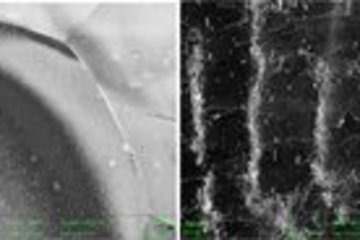All genres
921.
Talk
Ab initio guided design of materials for photonic applications. Colloquium at Tyndall University, Cork, Ireland (2011)
922.
Talk
A Detailed Investigation of Native and Light-induced Defects in Hydrogenated Amorphous Silicon by Electron-spin Resonance. MRS Spring Meeting and Exhibit 2011, San Francisco, CA, USA (2011)
923.
Talk
Thermodynamics and Kinetics of Superabundant Vacancies in fcc Metals. MRS 2011 Spring Meeting, San Francisco, CA, USA (2011)
924.
Talk
Enhancing mechanical properties of calcite by Mg substitutions - A quantum-mechanical study. EuroBioMat - European Symposium on Biomaterials and Related Areas, Jena, Germany (2011)
925.
Talk
Fully Ab Initio Description of Point Defect Formation and Properties at Extreme Temperatures. MRS 2011 Spring Meeting, San Francisco, CA, USA (2011)
926.
Talk
EPR parameters of the dangling bond defect in crystalline and amorphous silion: A DFT-study. APS march meeting 2011, Dallas, TX, USA (2011)
927.
Talk
Hydrogen adsorption on polar ZnO(0001)–Zn - Extending equilibrium surface phase diagrams to kinetically stabilised structures. March meeting of the American Physical Society (APS), Dallas, TX, USA (2011)
928.
Talk
Hydrogen solution enthalpies derived from first principles: Chemical trends along the series of transition metals. DPG Frühjahrstagung 2011, Dresden, Germany (2011)
929.
Talk
Quasiparticle band offsets at heterojunctions from GW superlattice calculations. DPG Frühjahrstagung 2011, Dresden, Germany (2011)
930.
Talk
Ab initio prediction of thermodynamic data for selected phases of the Al–Mg–Si–Cu system. DPG conference, Dresden, Germany (2011)
931.
Talk
Finite temperature magnetism combining first-principles and spin Quantum Monte Carlo. DPG Frühjahrstagung, 2011, Dresden, Germany (2011)
932.
Talk
Superabundant vacancies in fcc metals: A combination of ab-initio, thermodynamic and kinetics approaches. DPG 2011 Meeting, Dresden, Germany (2011)
933.
Talk
EPR parameters of the dangling bond defect in crystalline and amorphous silion: A DFT-study. DPG spring meeting 2011, Dresden, Germany (2011)
934.
Talk
Hydrogen adsorption on polar ZnO(0001)–Zn - Extending equilibrium surface phase diagrams to kinetically stabilised structures. DPG Frühjahrstagung 2011, Dresden, Germany (2011)
935.
Talk
Effect of H on homogeneous dislocation nucleation: Consequences for hydrogen embrittlement. DPG Frühjahrstagung der Sektion Kondensierte Materie (SKM), Dresden, Germany (2011)
936.
Talk
First principles study of elastic properties of eutectic Ti-Fe alloys up to their mechanical stability limits. DPG Spring Meeting 2011, Dresden, Germany (2011)
937.
Talk
Enhancing mechanical properties of calcite by Mg substitutions - An ab initio study. American Physical Society - March Meeting, Dallas, TX, USA (2011)
938.
Talk
Mechanical Design Principles of Crustacean Cuticle evaluated experimentally and by Ab initio-based Multiscale Simulations. Institute Colloquium, Institut de Mécanique des Fluides et des Solides, CNRS, Strasbourg, France (2011)
939.
Talk
First principles concepts to calculate thermodynamic properties of magnetic materials. ICAMS Advanced Discussions, Bochum, Germany (2011)
940.
Talk
Materials design based on ab initio thermodynamics: Development of accurate and efficient multiscale strategies. DPG-Tagung, Dresden, Germany (2011)











